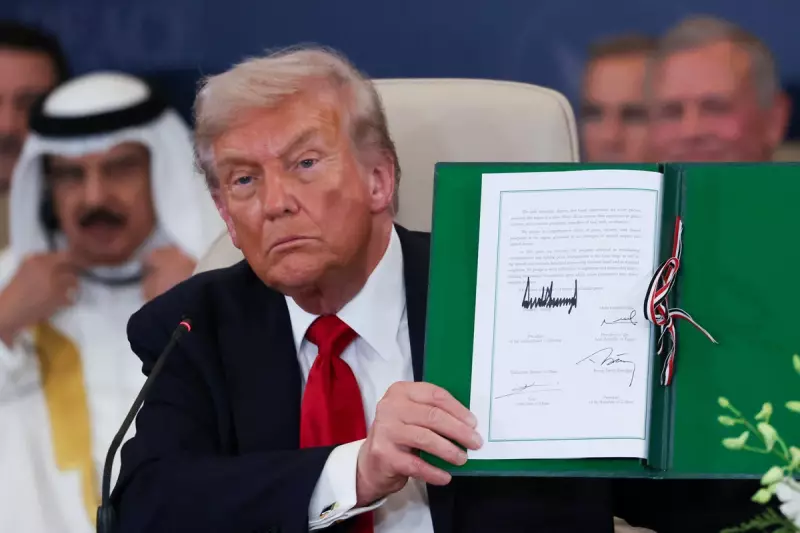
In a stunning revelation that has sent shockwaves through diplomatic circles, former US President Donald Trump's administration secretly secured an agreement with Egypt to potentially send troops to support a controversial Middle East peace plan, according to newly uncovered documents.
The Hidden Accord
The explosive agreement, negotiated during Trump's final year in office, committed Egyptian forces to intervene if other Arab nations faced internal unrest following the announcement of the Trump administration's Middle East peace proposal. This clandestine arrangement raises profound questions about the transparency of international diplomacy and the true nature of the much-touted 'deal of the century'.
Diplomatic Fallout
Current Egyptian officials have confirmed the existence of this previously undisclosed accord, though they maintain the agreement was never activated. The revelation comes at a particularly sensitive time for Middle East relations, casting new shadows over the legacy of Trump's foreign policy achievements in the region.
Broader Implications
The secret deal exposes several critical concerns:
- The extent of behind-the-scenes negotiations that remained hidden from public scrutiny
- Questions about sovereignty and the role of foreign military intervention in regional politics
- The ongoing challenges facing Middle East peace efforts under changing US administrations
Middle East analysts suggest this disclosure could complicate current diplomatic efforts in the region, potentially undermining trust between nations and calling into question the methods employed to secure international agreements.
Regional Reactions
While Egyptian authorities insist the agreement was a standard precautionary measure, critics argue it represents a dangerous precedent for covert military arrangements that bypass conventional diplomatic channels. The timing of this revelation, as the Biden administration attempts to reshape US foreign policy in the Middle East, adds another layer of complexity to an already volatile situation.
As the international community digests this new information, serious questions remain about what other undisclosed agreements might exist and how they could shape the future of Middle Eastern geopolitics.





